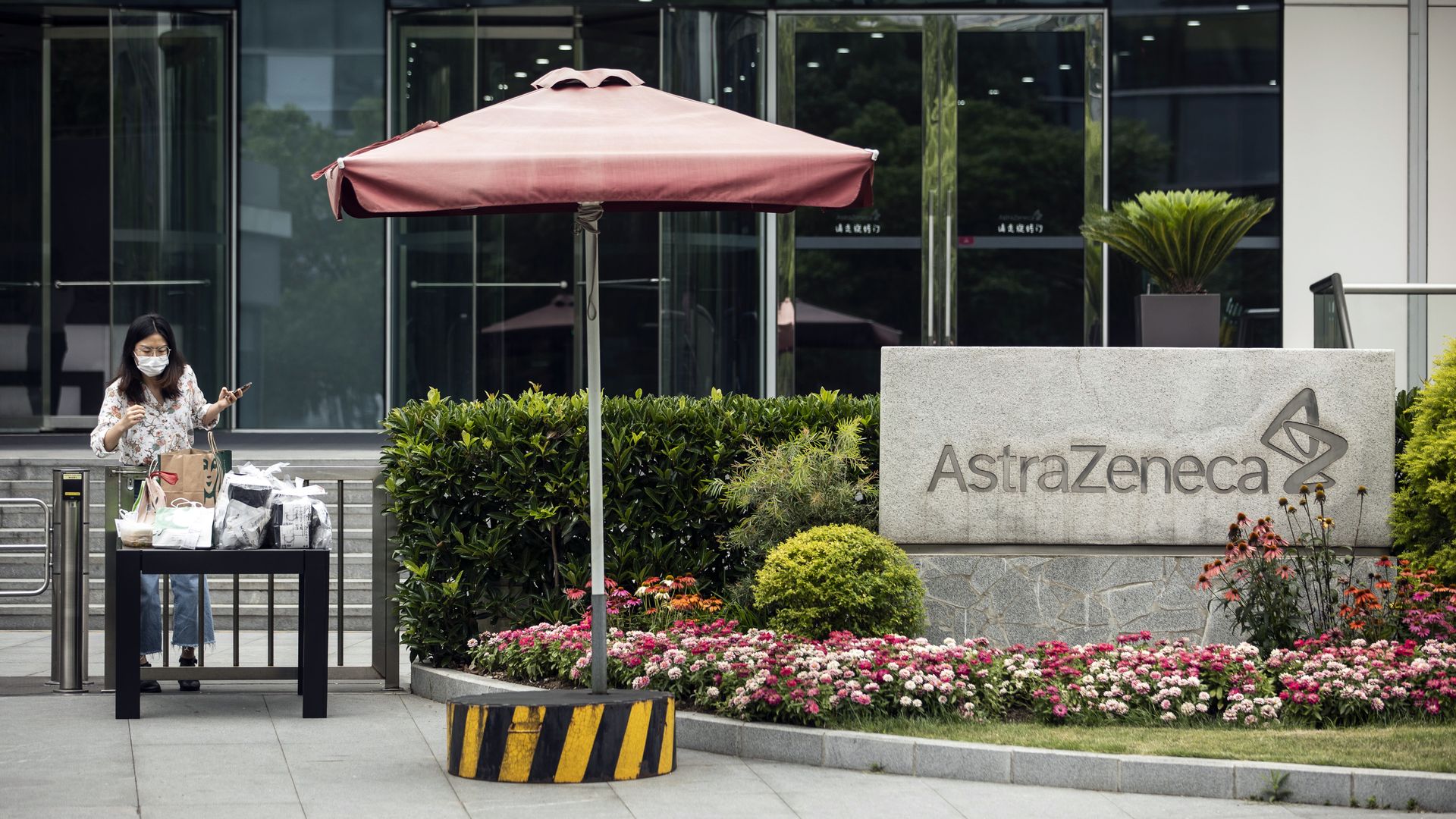FDA approves AstraZeneca COVID drug for people with immune problems
Add Axios as your preferred source to
see more of our stories on Google.

Photo: Qilai Shen/Bloomberg via Getty Images
The Food and Drug Administration issued an emergency use authorization for an AstraZeneca COVID-19 antibody drug for people with compromised immune systems.
Why it matters: The drug, Evusheld, is the first antibody therapy authorized in the U.S. to prevent coronavirus symptoms before virus exposure.
- It provides long-lasting protection with a single dose and is authorized for certain adults and adolescents who are not currently infected with COVID-19 and who haven't recently been exposed.
- Currently, it is only authorized for immunocompromised people, including organ transplant recipients, blood cancer patients, and people taking immunosuppressive drugs for conditions like rheumatoid arthritis.
What they're saying: Patrizia Cavazzoni, director of the FDA's Center for Drug Evaluation and Research, noted in a statement that vaccines were still the best defense against COVID-19.
- "However, there are certain immune compromised individuals who may not mount an adequate immune response to COVID-19 vaccination, or those who have a history of severe adverse reactions to a COVID-19 vaccine and therefore cannot receive one and need an alternative prevention option," Cavazzoni added.
- "Today's action authorizes the use of the combination of two monoclonal antibodies to reduce the risk of developing COVID-19 in these individuals."
How it works: The drug is made up of two monoclonal antibodies, laboratory-made proteins that mimic the immune system’s ability to fight off harmful pathogens such as viruses — tixagevimab and cilgavimab.
- It's administered via two injections — one of each monoclonal antibody — in the same sitting and may provide up to six months of protection.
By the numbers: Under the agreement, AstraZeneca will supply the U.S. government with 700,000 doses of Evusheld, to be proportionally distributed across states at no cost and on a pro rata basis.
